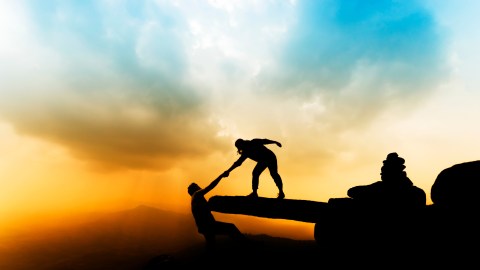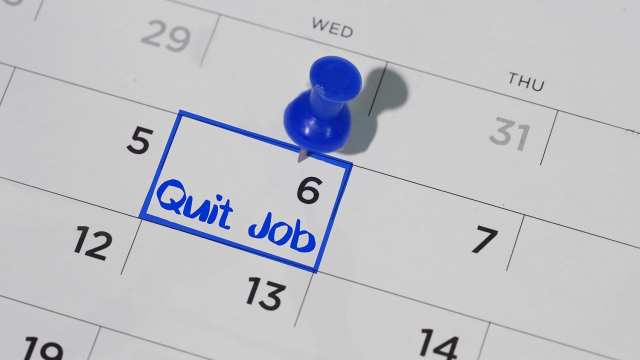Evolution got us here, but we can change where we’re going

Late last week, CNN interviewed a Puerto Rican woman who was harassed for, well, being Puerto Rican, at least according to the shirt she was wearing. Mia Irizarry’s video has now been viewed over 1.5 million times, prompting many news outlets to cover her ordeal. Celebrating her 24th birthday, Irizarry had secured a permit to throw a party at a Chicago park. An older white man didn’t like that.
Specifically, he didn’t like the fact that she was wearing any flag other than the American brand. It’s the type of viral video that you wonder if should watch, and then, choosing to do so, shake your head at his complete lack of humanity. He asks her if she’s a citizen (she is); he harasses her for not being white enough; the cop, clearly visible in the frame, does nothing. Sure, we can say it’s Trump’s America, but the conditions for such ignorance existed long before his presidency; this vitriol and fear of “the other” is in large part what made his ascension possible.
You start thinking, “it’s just who we are.” Humans will always be tribal, meaning humans will always be racist. Then you come across better examples of our humanity, such as the Japanese soccer team leaving a thank you note after losing to Belgium. The team also scrubbed their locker room spotless. Talk about taking the high road.
Amazing from Japan.
This is how they left the changing room after losing v Belgium: cleaned it all.
And in the middle, have left a message to Russia: “Spasibo” (Thank you) pic.twitter.com/lrwoIZt2pR— Tancredi Palmeri (@tancredipalmeri) July 3, 2018
It’s not just what we say, but what we do that matters. Being a good person in public for the sake of being a good person (and not for some potential reward) inspires others to do the same. Smiling at a stranger. Lending a hand. You never know how far such simple acts go.
Of course, the opposite exists: yelling at a young woman for being Puerto Rican might well negatively influence others. Such rhetoric has no place in a civilized society, in any society, but really, we’re both at the same time. And, despite long-held beliefs, neither is our birthright.
Patterns of behavior do in fact go way back. Ancient scripts often reveal stunning mythological tales, yet one 3,700-year-old Babylonian clay tablet turns out to be a complaint about poor craftsmanship. As Brian Gallagher writes on Nautilus, the past is not destiny. Sure, we’ll find all sorts of historical examples to pin blame on for current behavior. Yet we have a choice in deciding who we want to be. He quotes paleontologist Ian Tattersall:
We can basically blame evolution for our shortcomings and look upon ourselves as somewhat optimized, and therefore not have to change our behaviors. We are not the product of perfectionizing. We are, in many ways, totally accidental. That to me is the big lesson. If we’re accidental, then we have the responsibility to exploit our own abilities in the most responsible way.
Japan is a great example. I recently rewatched “Rashomon,” as my wife had not seen this particular Kurosawa classic. The filmmaker’s role, and specifically this film, was essential in rebuilding Japan’s image of itself after World War II. The mythical samurai became a symbol of strength and honor in a nation that had recently been exploited by the world’s most terrifying technology. There are many ways a society can go after such trauma. At the very least, its national soccer team remembers to put humanity first.
It's not only cleaning habits. One study investigated the mindset of American and Japanese drivers watching someone run a red light. In America, most respondents thought that driver insensitive and rude. In Japan, however, they worried that the offending driver might have an emergency to attend to. They empathized with a potential problem instead of defaulting to the perception of a belligerent and selfish action.
Moral codes are built into us by design. Empathy and group fitness are necessary requirements for the evolution of a dominant species. We even programmed this into the beings we create, at least going by the characters on Westworld. Once the hosts gain consciousness, they immediately institute a rule for treating other hosts: it’s your choice to live or die. Hosts that have not met since their awakening all honor this previously unspoken code. It evolved from empathy.
This is exactly what the mythologist Joseph Campbell noticed in ancient society after society that had no contact with one another. Pulling from the Jungian notion of a collective unconscious, Campbell noticed societies addressing the same topics across the planet nearly simultaneously. Inevitably many of their philosophies were rooted in moralistic outlooks.
While moral decisions appear universal, there is variety in exactly how the group mind operates (rude driver or fellow citizen in crisis). We are united by certain genetic traits and social behaviors, but how those interact with the society we’re in is open for interpretation.
Which means that, in an interconnected world such as ours, how we act is up to us. This is an empowering reminder that the world we build is in our hands and defined by our minds. Defaulting to old destructive behaviors is our choice. But so is being better than that.
--
Stay in touch with Derek on Facebook and Twitter.





